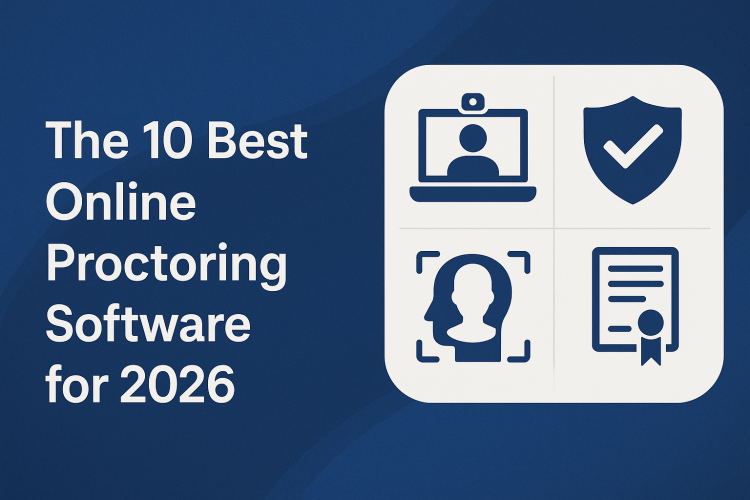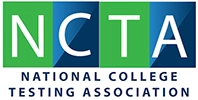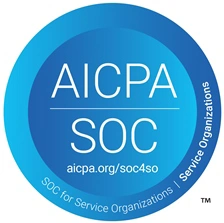The AI Revolution in Online Testing
Since ChatGPT burst onto the scene in late 2022, the landscape of academic integrity has fundamentally changed. What began as an innovative AI tool quickly became a significant concern for educational institutions and certification providers worldwide. According to a 2023 survey by Intelligent.com, approximately 30% of college students admit to using AI tools like ChatGPT for completing assignments without disclosure to their instructors.
The stakes are high. With ChatGPT's capabilities extending to writing essays, solving complex mathematical problems, coding solutions, and even passing professional certification exams, traditional assessment security measures have proven inadequate. GPT-4, the most advanced iteration, has demonstrated the ability to score in the 90th percentile on the Uniform Bar Exam and achieve competitive scores on standardized tests like the GRE, LSAT, and various professional certifications.
At Proctor360, we have developed comprehensive strategies to address these challenges while maintaining the flexibility and accessibility that makes online testing valuable. Let's explore how our advanced online proctoring techniques can effectively combat ChatGPT and other AI tools in assessment environments.
Understanding the AI Cheating Challenge
Why Traditional Methods Fall Short
Traditional plagiarism detection software struggles with AI-generated content for a fundamental reason: ChatGPT doesn't simply copy text from its training sources. Instead, it generates original content based on patterns learned from vast datasets. This means that unlike conventional plagiarism where text is directly copied from existing sources, ChatGPT produces new text that often appears authentic to plagiarism checkers.
Additionally, recent studies from Stanford University and University of Chicago researchers have shown that AI detection tools achieve only 60-70% accuracy in identifying AI-generated text, with this rate dropping significantly when students make even minor edits to the AI output.
The Evolution of AI Cheating Methods
Students have quickly adapted to use AI tools in increasingly sophisticated ways:
- Using secondary devices to access ChatGPT during exams
- Asking voice assistants like Siri or Alexa to relay information
- Pre-loading ChatGPT with course content before tests
- Using AI tools to rephrase other AI-generated content to evade detection
- Combining AI-generated content with human editing
According to a 2024 report by the International Center for Academic Integrity, institutions using only basic browser lockdown tools without comprehensive proctoring have seen academic misconduct cases increase by 42% since the widespread adoption of generative AI tools.
Proctor360's Multi-layered Approach to Preventing AI Cheating
Our comprehensive solution leverages end-to-end proctoring with multiple security layers to prevent AI tool usage during exams:
1. 360° Total View™ Technology: The Ultimate Environmental Surveillance
Our patented 360° Total View™ headset provides complete environmental visibility that standard webcams cannot match. This revolutionary technology:
- Captures a complete 360-degree view of the test environment
- Eliminates blind spots where secondary devices might be hidden
- Records high-definition video throughout the testing session
- Functions effectively for both online and paper-based exams
The 360° view represents a quantum leap in remote proctoring security, providing test center-grade monitoring from anywhere.
2. Advanced Multi-Camera Detection and Prevention
Even without our specialized headset, our multi-camera approach offers superior security:
- Uses the student's cell phone as a secondary camera for enhanced visibility
- Captures angles that a standard webcam misses
- Provides comprehensive recording of all views and audio
- Allows proctors to observe desk surfaces, hidden areas, and surroundings
This approach significantly reduces the opportunity for students to access unauthorized devices or AI tools during exams.
3. Sophisticated Browser Lockdown and Control
Our secure browser environment:
- Restricts access to unauthorized websites, including AI tools and chatbots
- Prevents keyboard shortcuts that could be used to access external resources
- Blocks application switching during exams
- Maintains continuous screen recording to identify suspicious behavior
- Allows customized access to specific authorized resources when appropriate
4. Secondary Device Detection Technology
Our platform employs multiple methods to identify unauthorized device usage:
- Proprietary technology that detects attempts to access test content from secondary devices
- Advanced algorithms that identify network patterns consistent with AI tool usage
- Room scanning requirements before testing begins
- Continuous audio monitoring for voice assistant activation phrases
A 2023 study published in the Journal of Educational Technology found that comprehensive device detection systems reduced instances of AI-assisted cheating by 83% compared to standard webcam-only proctoring.
5. AI-Powered Behavior Analysis
Our system uses advanced AI to:
- Monitor eye movements and facial expressions that suggest off-screen viewing
- Detect unusual typing patterns consistent with copying from external sources
- Identify inconsistent response timing that indicates potential external assistance
- Flag behavior patterns that deviate from expected test-taking activities
These behavioral markers serve as early warning signs of potential academic misconduct.
6. Live Proctoring Integration
While technology forms the foundation of our security approach, the human element remains crucial:
- Live proctors can intervene in real-time when suspicious activity is detected
- Professional proctors receive specialized training in identifying AI tool usage
- Our proctors can communicate directly with test-takers to address concerns
- The presence of live monitoring creates a powerful deterrent effect
Research from the University of Michigan found that hybrid proctoring systems combining AI monitoring with human oversight reduced academic misconduct by 76% compared to automated-only systems.
Implementing Effective AI-Resistant Assessment Strategies
Beyond our technological solutions, we recommend several best practices for creating AI-resistant assessments:
Design AI-Resistant Questions and Assessments
- Develop application-based questions that require original analysis rather than fact recall
- Create assessments that incorporate personal experience or reflection
- Utilize case studies that require specific course knowledge to analyze
- Implement timed assessments that limit the opportunity to consult external resources
- Design questions with multiple interconnected parts that build upon each other
Establish Clear Academic Integrity Policies
- Update your academic integrity policies to specifically address AI tools
- Clearly communicate expectations and consequences to students
- Require students to acknowledge AI usage policies before beginning assessments
- Provide examples of acceptable and unacceptable AI use in academic contexts
Consider Alternative Assessment Methods
- Implement oral examinations or presentations as part of assessment strategy
- Use project-based assessments that require ongoing documentation
- Incorporate peer review processes into evaluation methods
- Create assignments that require in-class or proctored components
The Proctor360 Advantage: Flexible Solutions for Every Examination Need
What sets Proctor360 apart is our commitment to flexibility. We understand that different exams require different levels of security based on stakes, content, and institutional requirements.
Customizable Proctoring Options
Our platform offers multiple proctoring types to match your specific needs:
- 360° Total View™ Proctoring: The gold standard for high-stakes exams requiring maximum security
- Multi-cam Live Proctoring: Enhanced visibility using existing student devices
- Single Webcam Live Proctoring: Professional live monitoring with screen recording
- AI Auto-proctoring: Automated monitoring with behavior analysis
- Remote Proctoring Software: Tools for institutions to proctor their own exams
Unlike providers who offer only one proctoring approach, we believe in tailoring solutions to match the specific security needs of each exam. This flexibility ensures appropriate security without unnecessary restrictions or costs.














